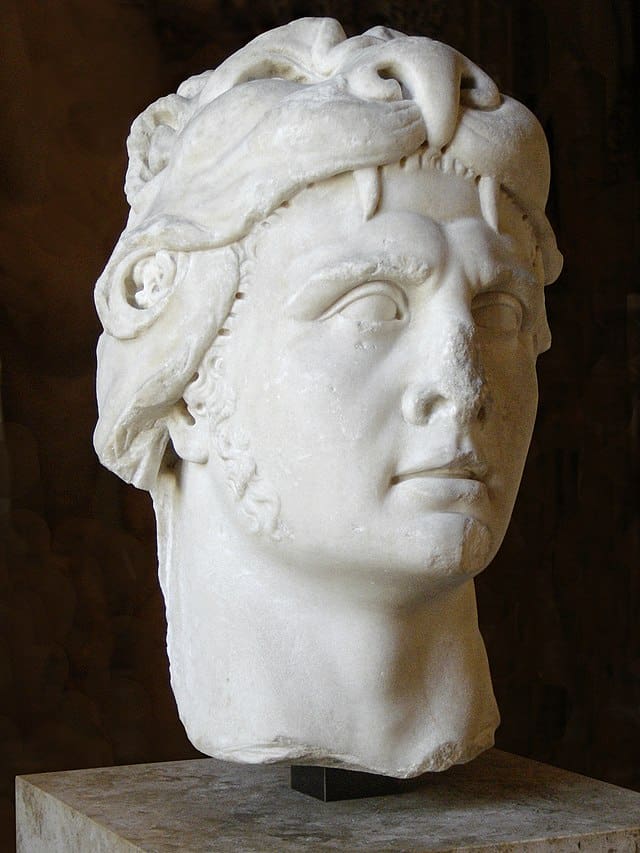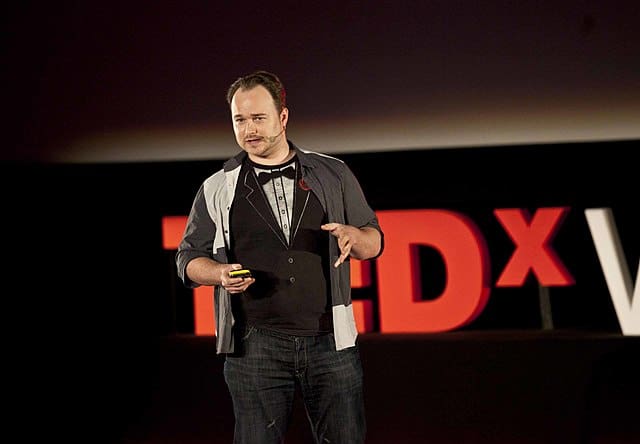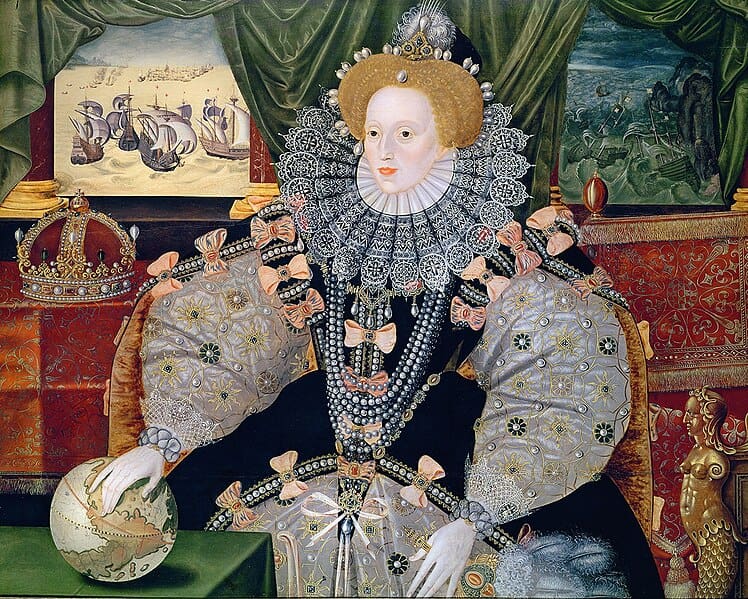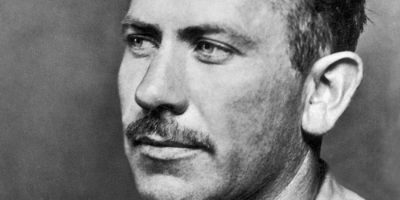30 Famous Polyglots Who Redefined Multilingualism
In a world brimming with diverse cultures and languages, the ability to communicate across borders has never been more valuable. Polyglots, individuals who possess exceptional fluency in multiple languages, stand out to bridge the gaps between cultures and foster understanding. Throughout history, polyglots have played pivotal roles in global communication, diplomacy, and intellectual exchange.
From ancient scholars to modern-day linguists, their mastery of languages has unlocked doors to new worlds, enabling them to decipher ancient texts, navigate international relations, and immerse themselves in diverse cultures. Polygots approach languages not just as tools for communication, but as gateways to understanding different perspectives, cultures, and ways of thinking. In this article, we highlight 30 such famous Polygots who have redefined multilingualism.
1. Akbar
Akbar was the third Mughal emperor, who reigned from 1556 to 1605. Akbar succeeded his father, Humayun, under a regent, Bairam Khan, who helped the young emperor expand and consolidate Mughal domains in the Indian subcontinent. Akbar was widely known for proficiency in multiple languages.
Akbar gradually enlarged the Mughal Empire to include much of the Indian subcontinent through Mughal military, political, cultural, and economic dominance. To unify the vast Mughal state, Akbar established a centralised system of administration and adopted a policy of conciliating conquered rulers through marriage and diplomacy.
2. Cleopatra

Johann Jakob Frey the Elder, CC0, via Wikimedia Commons
Cleopatra was Queen of the Ptolemaic Kingdom of Egypt from 51 to 30 BC, and its last active ruler. A member of the Ptolemaic dynasty, she was a descendant of its founder Ptolemy I Soter, a Macedonian Greek general and companion of Alexander the Great.
After the death of Cleopatra, Egypt became a province of the Roman Empire, marking the end of the last Hellenistic period state in the Mediterranean and of the age that had lasted since the reign of Alexander (336–323 BC). Her first language was Koine Greek and she is the only known Ptolemaic ruler to learn the Egyptian language.
3. Kato Lomb
Kato Lomb was a Hungarian interpreter, translator and one of the first simultaneous interpreters in the world. Originally educated in physics and chemistry, her interest soon led her to languages. Native in Hungarian, she could interpret fluently in nine or ten languages. She was able to understand journalism in a further 11 languages. She stated that she worked professionally with 16 languages, which included; Bulgarian, Chinese, Danish, English, French, German, Hebrew, Italian, Japanese, Latin, Polish, Romanian, Russian, Slovak, Spanish, and Ukrainian, which she learned mostly by self-study due to her interest in them.
According to her own account, her long life was highlighted not primarily by her use of languages, but her study of them. Through her books, published in several editions, in Hungarian and other languages, interviews and conversations, she tried to share this joy with generations of potential language learners.
4. Cardinal Giuseppe Caspar Mezzofanti
Cardinal Giuseppe Caspar Mezzofanti was an Italian cardinal and famed hyperpolyglot. He showed exceptional mnemonic skills as well as a flair for music and foreign language learning from a very young age. He studied with the Piarists where he had the chance to meet several missionaries from various countries. By speaking with them he began learning several new languages including Swedish, German, Spanish and South American native languages as well as studying Latin and ancient Greek in school.
Mezzofanti was well known for being a hyperpolyglot who spoke at least thirty languages with rare excellence. He was reported to have spoken nine other languages fluently, and with dozens of others, he is said to have had at least basic knowledge.
5. Ziad Fazah
Ziad Fazah is a Liberian-born Lebanese alleged polyglot. Fazah has claimed to speak 59 languages and maintains that he has proved this in several public appearances in which he supposedly communicated with native speakers of a large number of foreign languages.
Fazah decided to study languages after encountering Armenians in Lebanon and learning Armenian. He currently lives in Brazil, having lived there since 1971. The Guinness Book of World Records, up to the 1998 edition, listed Fazah as being able to speak and read 58 languages, citing a live interview in Athens, Greece in July 1991.
6. Mithridates VI of Pontus

Sting, CC BY-SA 2.5, via Wikimedia Commons
Mithridates VI of Pontus was the ruler of the Kingdom of Pontus in northern Anatolia from 120 to 63 BC, and one of the Roman Republic‘s most formidable and determined opponents. He was an effective, ambitious and ruthless ruler who sought to dominate Asia Minor and the Black Sea region, waging several hard-fought but ultimately unsuccessful wars to break Roman dominion over Asia and the Hellenic world. He has been called the greatest ruler of the Kingdom of Pontus.
In Pliny the Elder’s account of famous polyglots, Mithridates could speak the languages of all the twenty-two nations he governed. This reputation led to the use of Mithridates’ name as title in some later works on comparative linguistics, such as Conrad Gessner’s Mithridates de differentiis linguarum (1555), and Adelung and Vater’s Mithridates oder allgemeine Sprachenkunde (1806–1817).
7. Catalina de Erauso
Catalina de Erauso also went by Alonso Díaz and some other masculine names, later taking on the name Antonio de Erauso which he went by for the remainder of his life. Erauso was originally an unwilling nun but escaped the convent and travelled around Spain and Spanish America, mostly under male identities, in the first half of the 17th century.
Antonio de Erauso wrote or dictated the autobiography which remained in manuscript form until it was first published in Paris in 1829 at the request of Joaquín María Ferrer, a second time in Barcelona in 1838, and for the third time in 1894 in Paris, with illustrations by Spanish artist Daniel Vierge.
8. Ludwig Zamenhof

Bildarchiv Austria, Public domain, via Wikimedia Commons
Ludwig Zamenhof was an ophthalmologist who lived for most of his life in Warsaw. He is best known as the creator of Esperanto, the most widely used constructed international auxiliary language. Zamenhof first developed the Esperanto language in 1873 while still in school. He grew up fascinated by the idea of a world without war and believed that this could happen with the help of a new international auxiliary language.
The language would be a tool to gather people together through neutral, fair, equitable communication. Zamenhof successfully formed a community which has survived to this day despite the World Wars of the 20th century and continues making attempts to reform the language or create more modern IALs. Additionally, Esperanto has developed like other languages: through the interaction and creativity of its users.
9. Ellen Jovin
Ellen Jovin is an internationally acclaimed grammar and language expert. She has written three other books on writing and grammar: English At Work: Find and Fix Your Mistakes in Business English; Essential Grammar for Business: The Foundation of Good Writing; and Writing for Business: Professionalism, Integrity & Power.
Ellen has achieved fluency in six languages and has studied more than 25 in nine different writing systems for fun. She is a co-founder of Syntaxis, a communication skills training firm whose clients include many multinational corporations. Earlier in her career, Ellen taught English as an adjunct lecturer at New York University and other colleges and then spent several years as a full-time freelance writer. Ellen has a B.A. in German studies from Harvard University and an M.A. in comparative literature from UCLA.
10. Ken Hale

Pierrepica, CC BY-SA 4.0, via Wikimedia Commons
Ken Hale was an American linguist at the Massachusetts Institute of Technology who studied a huge variety of previously unstudied and often endangered languages especially indigenous languages of North America and Australia. Languages investigated by Hale include Navajo, O’odham, Warlpiri, and Ulwa.
Among his major contributions to linguistic theory was the hypothesis that certain languages were non-configurational, lacking the phrase structure characteristic of such languages as English.
11. Olly Richards
Olly Richards speaks eight languages and is the man behind the popular blog: I Will Teach You A Language. He started learning his first foreign language at age 19 when he bought a one-way ticket to Paris. With no exposure to languages growing up, and no special talent to speak of, he had to figure out how to learn a foreign language from scratch. Fifteen years later, Olly has studied ten languages and has decided to reveal how he accomplished his goal of learning foreign languages quickly.
Although he started the I Will Teach You A Language blog in order to document his latest language learning experiments, his useful and actionable writing quickly transformed the blog into one of the most popular sources of language learning advice on the web. He now produces language books and courses across a variety of mediums with the goal of helping other people to successfully learn a new language.
12. Chris Lonsdale

The 3rd Ear LTD, CC BY-SA 4.0, via Wikimedia Commons
Chris Lonsdale is a psychologist, linguist and educator. Lonsdale created the Kung fu English learning system and is also the author of The Third Ear. Lonsdale graduated from the University of Canterbury in 1980 with first-class honours.
He was accepted to Harvard University to do a PhD in hypnosis, however, he ultimately decided to explore China as it began opening to the world. In 1984, Lonsdale moved to Hong Kong, where he learned Cantonese.
13. Luca Serianni
Luca Serianni was an Italian linguist and philologist. Serianni was a professor of Italian language at Sapienza Università di Roma. A student of Arrigo Castellani’s, he conducted research about Italian linguistic history from the Middle Ages to the present day.
He authored a reference grammar of the Italian language. Together with Maurizio Trifone he was in charge of the Vocabolario della lingua Italiana Il Devoto-Oli, and with Pietro Trifone he edited Storia della lingua italiana. He was a member of the Accademia della Crusca, Accademia dei Lincei, Arcadia, and vice-chairman of the Società Dante Alighieri. In 2002, he was awarded an honorary degree from the University of Valladolid.
14. Kenneth Hale
Kenneth Hale was an American linguist at the Massachusetts Institute of Technology who studied a huge variety of previously unstudied and often endangered languages especially indigenous languages of North America and Australia. Languages investigated by Hale include Navajo, O’odham, Warlpiri, and Ulwa.
Among his major contributions to linguistic theory was the hypothesis that certain languages were non-configurational, lacking the phrase structure characteristic of such languages as English.
15. Alex Rawlings
Alex Rawlings was named Britain’s most multilingual student after being tested for fluency in 11 different languages.
Now having studied more than 15 languages, Alex spends his time writing about language learning and the importance of multilingualism.
16. Richard Simcott

Jezički Mostovi, CC BY 3.0, via Wikimedia Commons
Richard Simcott is a British hyperpolyglot who lives in Skopje, North Macedonia. He speaks 16 languages fluently. HarperCollins referred to him as one of the most multilingual people from the United Kingdom.
Besides the languages that he exhibits fluency in, he has also actively studied more than 50 languages at some point in his career.
17. Lydia Machova
Lýdia Machová has learned nine languages without ever living abroad or in a multilingual environment.
She maintains seven of them at a fluent level, and she usually learns a new one every two years.
18. Alexandre Arguelles
Alexandre Arguelles is an American linguist notable for his work on Korean. He is interested in learning foreign languages and was profiled in Michael Erard’s Babel No More. He is one of the polyglots listed in Kenneth Hyltenstam’s Advanced Proficiency and Exceptional Ability in Second Languages and has been described by The New Yorker as a legendary figure in the polyglot community.
He has taught in South Korea, Lebanon, Singapore, and Dubai, and was a Group Director of Immersion Language Programs at Concordia Language Villages in Bemidji, Minnesota.
19. Stuart Jay Raj
Stuart Jay Raj is an Australian polyglot who specializes in the languages and dialects spoken in South East Asia and China. His talents have allowed him to earn a professional living as a simultaneous interpreter in Thai, Mandarin, Cantonese, and Indonesian, among others, providing language and cultural training for multinational companies in the region and hosting his own TV programme on Thailand’s Channel 5.
He holds a degree in Cognitive and Applied Linguistics from Griffith University and has become an expert in the field of language acquisition with a strong track record of success. Stuart’s background knowledge of Sanskrit, Khmer, Lao and various Chinese dialects and minority languages enables him to present a fascinating and unique perspective on the Thai language which makes everything fall logically into place.
20. Benny Lewis

TEDx Warsaw, CC BY 2.0, via Wikimedia Commons
Benny Lewis is an Irish author and blogger who defines himself as a technomad language hacker. He is best known for his website Fluent in 3 Months, on which he documents personal attempts to learn languages within short time periods, typically three months.
Lewis is the author of the book Fluent in 3 Months (2014) as well as a language course series titled Language Hacking, including Spanish, French, German, and Italian.
21. Steve Kaufmann
Steve Kaufmann is a Canadian polyglot who has an understanding of 20 languages to varying degrees. He was a founding organizer of the North American Polyglot Symposium. He travels to learn languages and has given interviews in native languages on television channels around the world, including in Chinese, both Mandarin and Cantonese, Russian and Ukrainian.
Kaufmann has spent over 50 years studying languages. He believes that age is not an impediment to learning a language and that it is possible for older people to learn languages as well as younger people. He believes mistakes are a natural part of the learning process, and that people can be considered fluent despite making mistakes
22. Elizabeth I

Formerly attributed to George Gower, Public domain, via Wikimedia Commons
Elizabeth I was Queen of England and Ireland from 17 November 1558 until her death in 1603. Catherine Ashley was appointed as Elizabeth’s governess in 1537, and she remained Elizabeth’s friend until her death in 1565. Champernowne taught Elizabeth four languages: French, Dutch, Italian and Spanish. By the time William Grindal became her tutor in 1544, Elizabeth could write English, Latin, and Italian. Under Grindal, a talented and skilful tutor, she also progressed in French and Greek.
By the time her formal education ended in 1550, Elizabeth was one of the best-educated women of her generation. At the end of her life, she was believed to speak the Welsh, Cornish, Scottish and Irish languages in addition to those mentioned above.
23. Dimitrie Cantemir
Dimitrie Cantemir was a Moldavian prince, statesman, and man of letters. He twice served as voivode of Moldavia (March–April 1693 and 1710–1711). During his second term, he allied his state with Russia in a war against Moldavia’s Ottoman overlords.
Cantemir was also a prolific writer, variously a philosopher, historian, composer, musicologist, linguist, ethnographer, and geographer. Cantemir was a polyglot known as one of the greatest linguists of his time, speaking and writing eleven languages.
24. Harold Williams

http://www.nzedge.com/heroes/williams.html, Public domain, via Wikimedia Commons
Harold Williams was a New Zealand journalist, foreign editor of The Times and polyglot who is considered to have been one of the most accomplished polyglots in history. He is said to have known over 58 languages, naturally including his native English.
Harold proved to know every language of the Austrian Empire, including, Hungarian, Czech, Albanian, Serbian, Romanian, Swedish, Basque, Turkish, Mandarin Chinese, Japanese, Tagalog, Coptic, Egyptian, Hittite, Old Irish, and other dialects.
25. Timothy Doner
Timothy Doner is an American hyperpolyglot, former social media personality and a foreign policy analyst at the Washington-based Center for Advanced Defense Studies, specializing in the Middle East and Central Asia.
A graduate of Harvard University and the University of Cambridge, he rose to prominence at the age of 17 when he released a YouTube video in 2013 in which he spoke 20 different languages. He is a native of Manhattan, New York City and a resident of the East Village.
26. Emil Krebs

See page for author, Public domain, via Wikimedia Commons
Emil Krebs was a German polyglot and sinologist. He was reportedly able to speak and write 68 languages and studied 120 other languages.
Krebs’s private library of over 3,500 volumes and writings in approximately 120 languages is stored in the Library of Congress in Washington, D.C. His writings and books of language studies prove that he learned foreign languages not only through his native German but also through previously mastered foreign languages.
27. Richard Francis Burton
Richard Francis Burton was a British explorer, writer, orientalist scholar, and soldier. From the compilation and the range of literature written in the respective national languages and a language list personally written by him, it can be inferred that Krebs had mastered all the languages of today’s European Union, as well as other languages He was famed for his travels and explorations in Asia, Africa, and the Americas, as well as his extraordinary knowledge of languages and cultures. According to one count, he spoke twenty-nine languages.
28. Judith Meyer
Judith Meyer is a Berlin-based polyglot with a particular interest in non-European languages. She speaks 14 languages including Modern Greek and Chinese. While completing an MA in Romance Languages and Computational Linguistics, Judith became known as the voice of GermanPod101, contributing also to GreekPod101 and ArabicPod101.
After getting her degree, she was the head developer of a machine translation prototype, did consulting work for several of the big companies in the language-learning world, created LearnYu, an AI-driven Chinese course and founded the Polyglot Gathering, one of the largest conferences for polyglots and language bloggers.
29. Paul Boersma

Dimitri Reinderman, CC BY-SA 2.5, via Wikimedia Commons
Paul Boersma is a professor of phonetic sciences at the University of Amsterdam. His research and teaching focus on the relationship between phonology and phonetics. Together with David Weenink, he has developed the speech signal processing program Praat, which has become widely used.
30. Moses McCormick
Moses McCormick was an American YouTuber and language coach. McCormick gained popularity by speaking several languages with native speakers that he met in public places and uploading the videos on his YouTube channel. The foreign language in which McCormick was most fluent was Mandarin Chinese. He also spoke around twenty languages at a basic conversational level, including Japanese, Vietnamese, Cantonese, Korean, Somali, Spanish, and Swahili.
McCormick taught language lessons remotely over the Internet, over time developing his own language learning method, which he called FLR ( Foreign Language Roadrunning). According to his YouTube biography, “When I first began language learning 20 years ago, I noticed that most language books and classes did not teach students how to prepare for real-world conversations. In an attempt to solve this issue, I developed my own method, The FLR Method.”
The rewards of becoming a polyglot extend far beyond the ability to converse with people from different corners of the globe. Polyglots often experience enhanced cognitive abilities, improved memory, and increased creativity. They gain a deeper appreciation for the nuances of language and the power of communication to connect people across cultures. In today’s interconnected world, polyglots are more sought-after than ever. Their linguistic prowess opens doors to international careers, diplomatic roles, and opportunities in fields such as translation, education, and cultural exchange. They serve as bridges between cultures, fostering understanding and cooperation in a world yearning for global harmony.
Planning a trip to Paris ? Get ready !
These are Amazon’s best-selling travel products that you may need for coming to Paris.
Bookstore
- The best travel book : Rick Steves – Paris 2023 – Learn more here
- Fodor’s Paris 2024 – Learn more here
Travel Gear
- Venture Pal Lightweight Backpack – Learn more here
- Samsonite Winfield 2 28″ Luggage – Learn more here
- Swig Savvy’s Stainless Steel Insulated Water Bottle – Learn more here
Check Amazon’s best-seller list for the most popular travel accessories. We sometimes read this list just to find out what new travel products people are buying.










